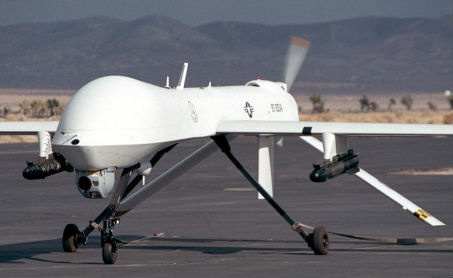About Those Destabilizing Air Strikes

In the fall of 2008, we were treated to a number of serious warnings from folks like Andrew Bacevich and Daniel Larison regarding the Bush administration's air war in Pakistan. Later, Petraeus advisor and counter-insurgency guru David Kilcullen chimed in saying that such strikes were "totally counter-productive."
Yet there have been a number of revelations in the past few weeks that put these strikes in a new light. First, we learned from Sen. Feinstein that Predator missions are being flown out of a base inside Pakistan (so much for violations of sovereignty). Next, we learn that the U.S. has targeted the militant group Baitullah Mehsud at the behest of the Zardari government. Today we learn in the New York Times that the Pakistani military has been receiving covert training from the U.S. to create an elite counter-terrorism force.
Throughout all these revelations runs the persistent thread that the government in Pakistan, whatever it says publicly, is very much on board with America's military campaign on its territory. This puts critics of this campaign in the odd position of being more concerned about the stability of Pakistan than the actual government of Pakistan. And unlike the Musharraf regime, the current government has a degree of democratic legitimacy.
This doesn't make American military action inside Pakistan any less problematic. Zardari could be miscalculating and popular unrest over military action could very well bubble over. But it could be that Pakistan has decided that U.S. military action inside their country is the worst possible option - except for all the others.
Pakistan is a microcosm of a persistent balancing act between those willing to risk short-term insecurity in pursuit of longer term goals, and those unwilling to live with short-term insecurity for the prospect of longer term gain. Those who caution against military strikes inside Pakistan are willing, in essence, to let senior al Qaeda leaders live. They insist that the continued air strikes will ultimately destabilize Pakistan, and that the security issues surrounding a destabilized Pakistan would dwarf whatever threat these al Qaeda leaders pose. Others (including both the Bush and, apparently, the Obama administrations) err on the side of short term security on the notion that while we can't know for sure what Pakistan's trajectory will be, we do know for certain that select individuals pose a direct threat to the U.S.
And despite confident assertions on all sides, no one really knows where the right balance is.



